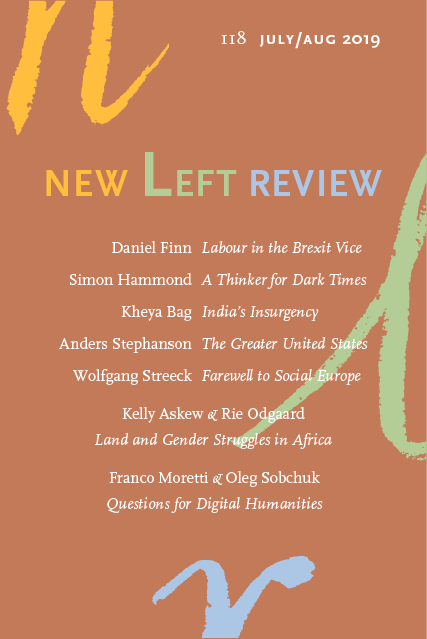After decades of hawkish neoliberalism, the British Labour Party has become the stage for an unprecedented experiment. To what extent has Corbyn’s leadership been able to transform Blair’s party into a vehicle for egalitarian renewal? Can his project survive the maelstrom of the UK’s Brexit crisis?
The most powerful critique of neoliberal culture since the crisis, issued from the margins of the blogosphere. Simon Hammond traces the arc of Mark Fisher’s career, from accelerationism to Capitalist Realism and beyond, in a striking comparison with the critical cultural studies of Stuart Hall.
Stories of land and gender struggles from the uplands of Tanzania, where the CCM government is bent on pushing through a land-titling programme, backed by the World Bank and Hernando de Soto, with the promise of women’s empowerment.
What is the meaning of data visualization in the Digital Humanities? What does it hide, in its acts of revealing? Considerations of time and form, data and theory, as two researchers put their field in a comparative frame.
A periodization of European social policy, from attempts to manage the militant labour upsurge of the late 1960s to a supra-national lever for neoliberal restructuring, by way of Maastricht’s Social Protocol. The upshot: a deleterious relocation of social-policy battles from the terrain of welfare-state building to the fields of fiscal policy and immigration.
Kheya Bag on Alpa Shah, Nightmarch. A Naxalite guerrilla platoon as the vantage point for a multi-faceted account of Indian society, and the state violence that advances extractive growth.
Anders Stephanson on Daniel Immerwahr, How to Hide an Empire. A reading of America’s global power through its territorial possessions, from ocean archipelagos to military bases.
